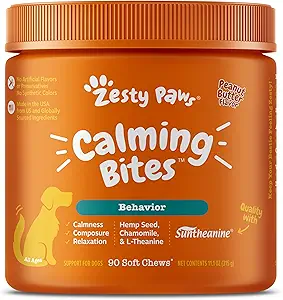What Makes Pembroke Welsh Corgis Unique in Personality?
This post may contain affiliate links, which means I’ll receive a commission if you purchase through my link, at NO EXTRA COST TO YOU
Pembroke Welsh Corgis burst with personality, charm, and energy. They mix intelligence with a playful nature, making them a joy to have at home. However, their strong-willed tendencies and high energy require proper understanding to ensure they thrive. Whether you are enchanted by their expressive faces or captivated by their quirky antics, knowing how to manage their unique temperament is essential.

In this guide, we’ll dive deep into the key personality traits of Pembroke Welsh Corgis, from their playful side to their loyalty and occasional stubbornness. Learning how to channel their enthusiasm through training and play will help you nurture a happy and well-adjusted pet.
The Cheerful and Playful Nature of Pembroke Welsh Corgis
If you want a companion that brings daily joy and excitement, look no further than a Pembroke Welsh Corgi. These dogs live to have fun! Whether they’re chasing a ball, zooming through the house, or rolling around with their favorite toy, Corgis always find ways to keep things entertaining. Their enthusiasm for life makes them ideal companions for active households.
Corgis love games like fetch, tug-of-war, or hide-and-seek. You can expect them to get involved in whatever you are doing because they enjoy being the center of attention. Their playful personality makes them excellent with children, though they need supervision to ensure their excitement doesn’t get out of hand.
Their zest for fun goes hand in hand with their intelligence. Mental challenges, such as puzzle toys, can keep them entertained while preventing boredom. This playful nature creates endless opportunities for bonding through fun activities and shared adventures.
Loyal Companions Who Love to Be Close
Pembroke Welsh Corgis are devoted dogs that thrive on companionship. They form strong emotional connections with their families, often following their favorite people around the house. If you enjoy a pet that sticks close by, a Corgi will become your shadow. These dogs prefer to stay involved in everything you do—whether you’re cooking, watching TV, or working from home.
Because they crave interaction, they don’t do well when left alone for long periods. Their loyalty means they want to stay connected at all times, which can sometimes lead to separation anxiety. For this reason, a Corgi makes an excellent choice if you work from home or have a busy household where someone is always around.
Corgis also love to greet their owners enthusiastically. You can expect lots of tail wags, happy barks, and joyful spins when you walk through the door. This loyalty means they will always be ready to cheer you up, no matter how your day went.
Energetic Dogs That Need Physical and Mental Stimulation
Even though they have short legs, Corgis pack a lot of energy into their small bodies. They need daily exercise to stay happy and balanced. A Corgi won’t be content with just a quick walk around the block—these lively dogs thrive on longer adventures. Without enough physical activity, they may start acting out by chewing, barking, or digging.
Incorporating play into their routine helps burn off energy while strengthening your bond. Games like frisbee, agility courses, or even a fun run at the park keep them engaged. You can also involve them in canine sports, where their natural agility and sharp minds shine.
Mental stimulation matters just as much as physical exercise. These dogs love puzzles, interactive toys, and learning new tricks. Training sessions serve a dual purpose—they keep their minds busy and help build good behavior. Incorporating challenges like scent games keeps their natural curiosity satisfied.
Curious, Independent, and Occasionally Stubborn
While Pembroke Welsh Corgis love pleasing their owners, they often have an independent streak. Sometimes, they decide to do things their way. This streak can make them seem stubborn, especially when they get fixated on something interesting. You may notice them ignoring commands if they spot a squirrel or become distracted by a new smell.
However, their stubbornness reflects their intelligence. These dogs think for themselves and sometimes test boundaries to see what they can get away with. Consistent training from an early age helps manage this behavior. Clear rules, patience, and positive reinforcement will teach your Corgi to listen, even when distractions tempt them.
Their independence adds to their charm, though. It gives them a quirky personality that sets them apart. While they might resist commands occasionally, they’ll never pass up the chance to make you laugh with their funny antics.
Natural Watchdogs with a Protective Streak
Corgis may look cute and cuddly, but they take their role as protectors seriously. Their natural watchdog instincts make them quick to alert you to anything unusual. Whether it’s a visitor at the door or a strange noise outside, your Corgi won’t hesitate to bark and let you know.
This protective streak means they feel responsible for keeping their family safe. While this behavior benefits you as a pet owner, it needs careful management to prevent excessive barking. Teaching them when it’s okay to bark and when to stay quiet helps balance their alertness with good manners.
Despite their bold nature, Corgis rarely show aggression. Their protective behavior comes more from loyalty than fear. As long as they receive early socialization, they remain friendly and well-mannered around guests and other pets.
Fun-Loving Herding Instincts That Show Up in Play
Corgis carry the legacy of their herding ancestors, which shows up in playful nipping and circling behaviors. They sometimes treat children or smaller pets as part of their “herd” by nudging or lightly nipping at their heels. Although these behaviors stem from instinct, they require correction to prevent accidents.
Channeling their herding drive into appropriate activities makes a big difference. Games that involve chasing or retrieving mimic the challenges they enjoy. Herding classes also offer structured outlets where they can embrace their instincts safely.
Teaching impulse control through commands like “leave it” or “wait” ensures their playful nature doesn’t become overwhelming. Redirecting energy toward toys or interactive activities helps manage their enthusiasm while keeping everyone safe.
Handling Emotional Sensitivity and Separation Anxiety
Corgis have sensitive souls that react strongly to emotional cues from their owners. They notice when something feels off, and they often try to provide comfort. However, their emotional sensitivity also means they can experience separation anxiety. When left alone too long, they may express distress by barking or engaging in destructive behavior.
Preventing separation anxiety involves training your Corgi to feel comfortable being alone. Start by leaving them for short periods and gradually increasing the time apart. Providing familiar items, such as a favorite toy or blanket, gives them comfort while you’re away.
Establishing a consistent routine makes them feel secure. Scheduling regular playtime, feeding times, and rest periods ensures they know what to expect each day. If long absences become necessary, arranging for a dog walker or pet sitter helps provide companionship in your absence.
Conclusion
Living with a Pembroke Welsh Corgi means embracing their playful energy, loyalty, and occasional stubbornness. These dogs bring joy with their love for fun and desire to stay close. Understanding their unique personality allows you to meet their needs while managing challenges like herding behaviors or separation anxiety. With proper training, regular exercise, and consistent affection, your Corgi will thrive as a beloved companion.
When you provide the right balance of structure, play, and emotional care, these spirited dogs reward you with endless love and laughter. Embrace their quirks, celebrate their charm, and enjoy every moment with your loyal Corgi by your side.







